Warning as new case of ultra-lethal mpox strain hits Britain – patient receives specialist treatment at London hospital
Another case of the new deadly mpox strain has been discovered in Britain, health officials confirmed today.
The clade 1b mutation, which experts call “the most dangerous yet”, kills one in 10 infected and is believed to be the cause of a wave of miscarriages.
The total number of confirmed cases in Britain now stands at four. They are all household contacts from the first case.
Officials don’t yet know how the unidentified first patient became infected with the strain — although skin-to-skin contact is suspected.
They had traveled back to Britain from a holiday in Africa on an overnight flight on October 21 before developing symptoms a day later.
The latest patient is under specialist care at Guy’s and St Thomas’ NHS Foundation Trust in London.
However, health chiefs say they still consider the threat clade 1b poses to the public to be ‘low’.
The total number of confirmed cases in Britain now stands at four. They are all household contacts from the first case
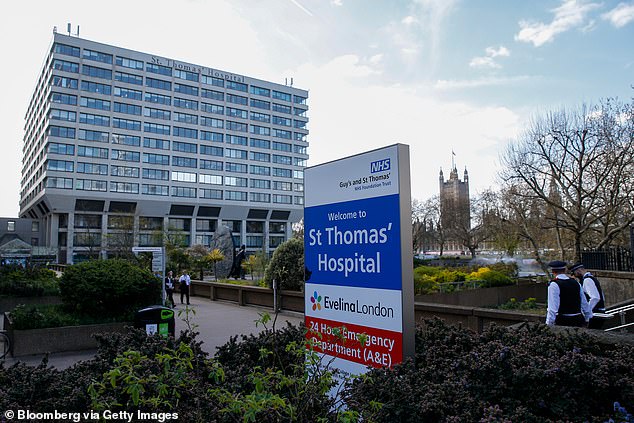
The latest patient is under specialist care at Guy’s and St Thomas’ NHS Foundation Trust in London
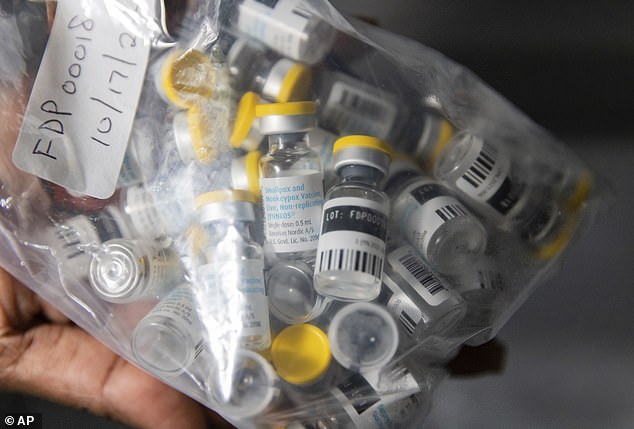
Single-dose vials of the Jynneos mpox vaccine are seen from a cooler at a vaccination site in Brooklyn, New York, on August 29, 2022, as the disease swept across the United States
Professor Susan Hopkins, chief medical adviser at UKHSA, said: ‘Mpox is highly contagious in households with close contact so it is not unexpected to see further cases within the same household.
‘The overall risk to the UK population remains low.
‘We are working with partners to ensure all contacts of the cases are identified and contacted to reduce the risk of further spread.’
The UKHSA said all contacts will be offered testing and vaccinations if necessary and will be advised on any further care if they have symptoms or test positive.
The first case was discovered after the unidentified patient developed flu-like symptoms 24 hours later, followed by a rash, and went to the emergency room on October 27, where they were tested for MPox.
They were then transferred to a high-quality isolation unit at the Royal Free Hospital in North London – the same facility that treated imported cases of Ebola in 2015.
On Monday, officials confirmed that a further two patients with the strain were being treated at Guy’s and St Thomas’ NHS Foundation Trust.
In May 2022, a global outbreak of MPox, formerly known as monkeypox, began in Africa.
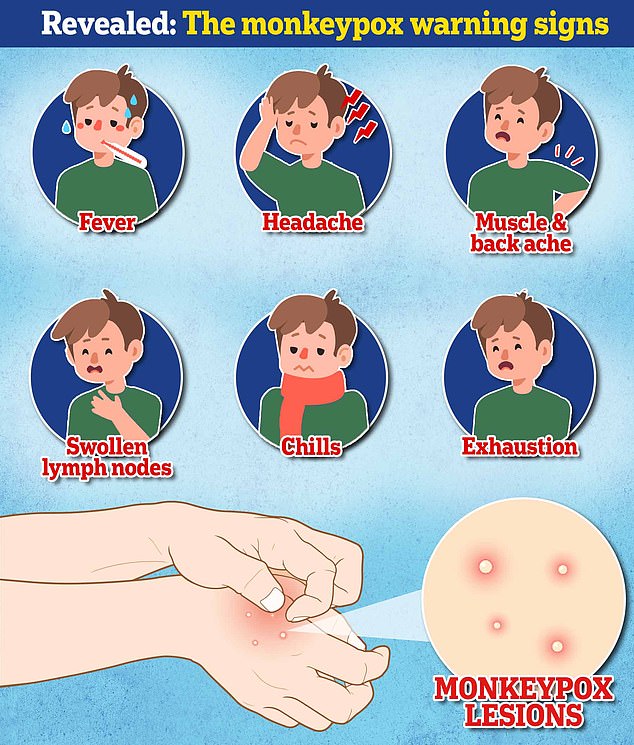
But the newest species, Clade 1b, is considered much deadlier.
Since the outbreak began, the disease has spread through Central Africa, killing at least a thousand people.
Countries such as the Democratic Republic of Congo have been hit particularly hard, with cases also seen in Burundi, Rwanda, Uganda and Kenya.
However, experts say the death rate of clade 1b from Central Africa is unlikely to be repeated in developed countries such as Britain, due to greater access to higher quality healthcare.
Britain’s four cases mean the country joins countries such as Sweden, Thailand, India and Germany in cases outside Africa.
In July, the World Health Organization (WHO) declared an ongoing MPox outbreak in several Central African countries a “public health emergency of international concern.”
This is the same name the WHO gave to Covid in late January 2020, just a few weeks before the virus spread across the world, and some scientists have likened the current outbreak to the ‘early days of HIV’.
Mpox causes characteristic lumpy lesions, as well as fever, pain and fatigue.
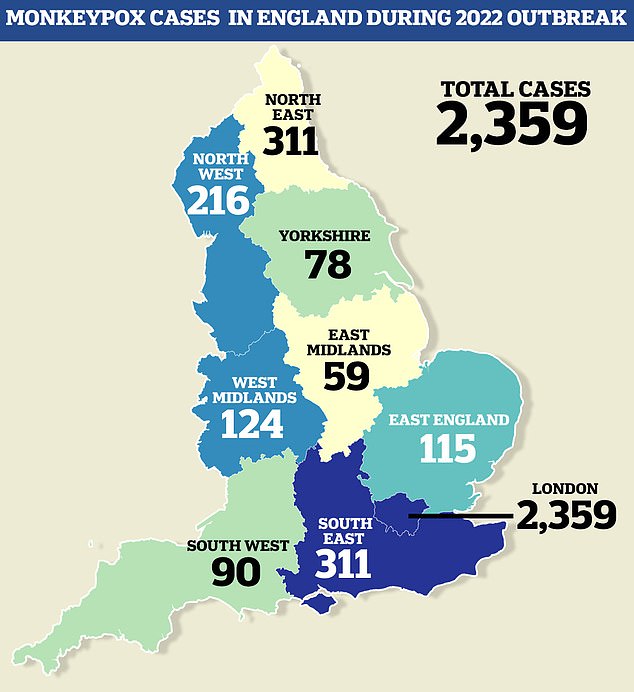
It is a far cry from the 2022 outbreak, when thousands of cases were recorded, mainly in London
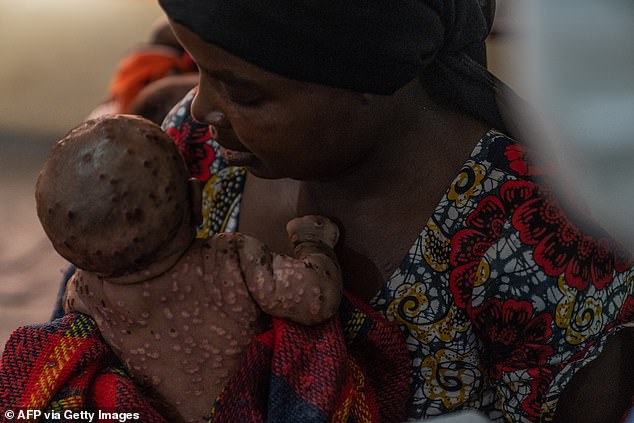
A woman cares for her baby suffering from a severe form of MPOX in eastern Democratic Republic of Congo
However, in a small number of cases it can enter the blood, lungs and other parts of the body, where it becomes life-threatening.
Current MPOX vaccines, which are designed to work against smallpox, a close relative of the MPOX virus, were used against the milder variant during the 2022 outbreak.
But they have yet to be widely tested against the more potent clade 1b strain.
The WHO and the NHS recommend a vaccine within four days of contact with someone who has the virus or within a maximum of fourteen days if there are no symptoms.
Healthcare workers and men who have sex with men are advised to get a vaccine even if they have not had exposure to MPox.
There are no immediate treatments available with clinicians instead focusing on supporting a patient to help their body fight the virus.
Last week, Health and Social Care Secretary Wes Streeting said the Government was working with UKHSA and the NHS ‘to protect the public and prevent transmission’.
He added: ‘This includes securing vaccines and equipping healthcare professionals with the guidance and tools they need to respond to cases safely.
‘We are also working with our international partners to support affected countries to prevent further outbreaks.’
